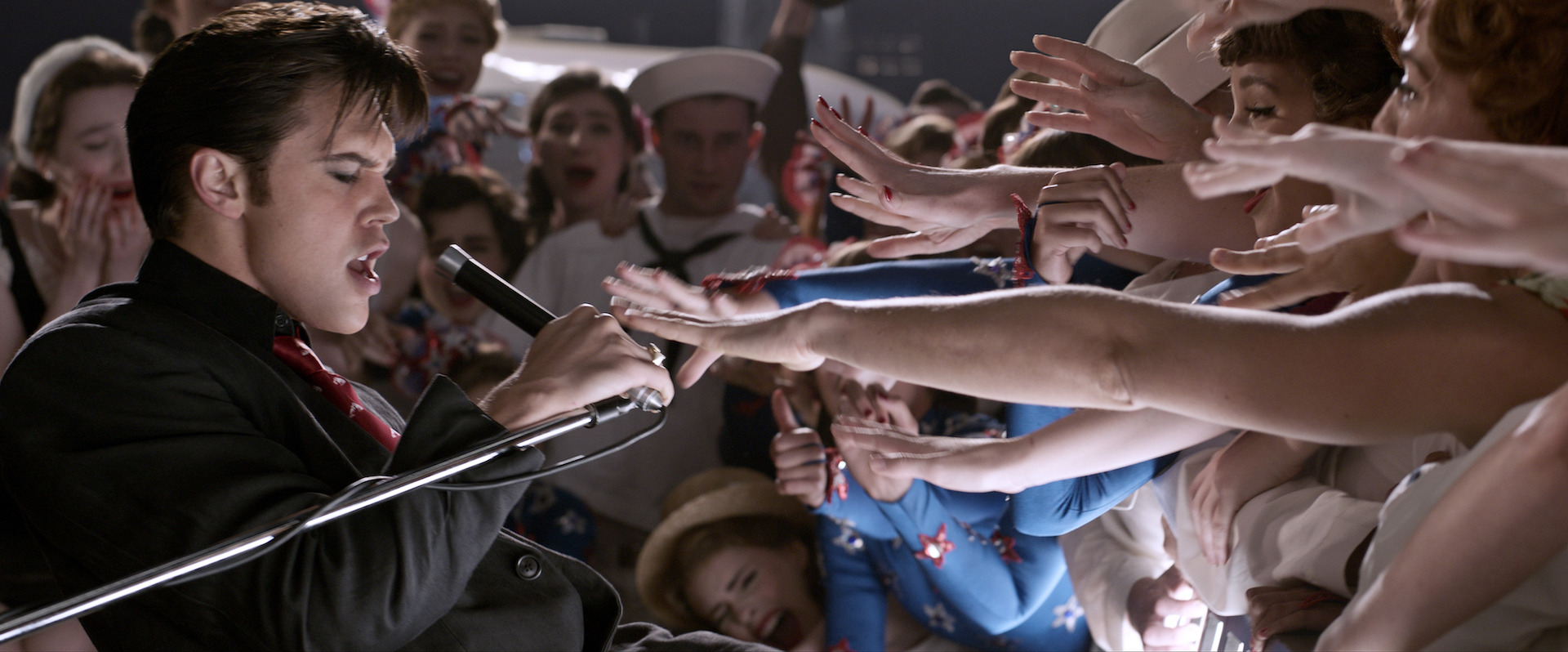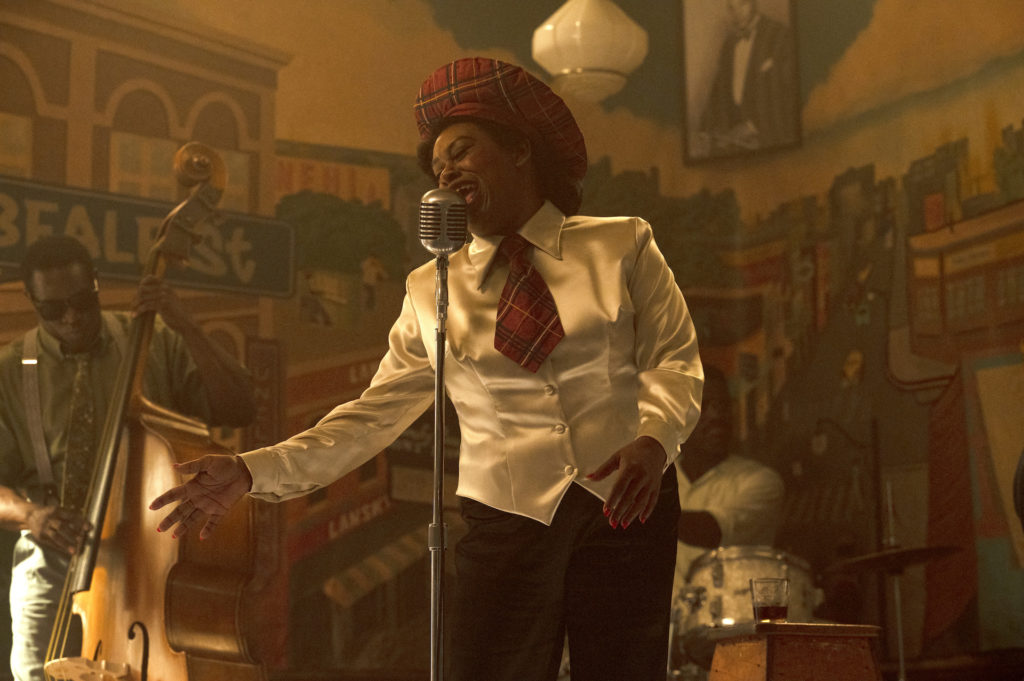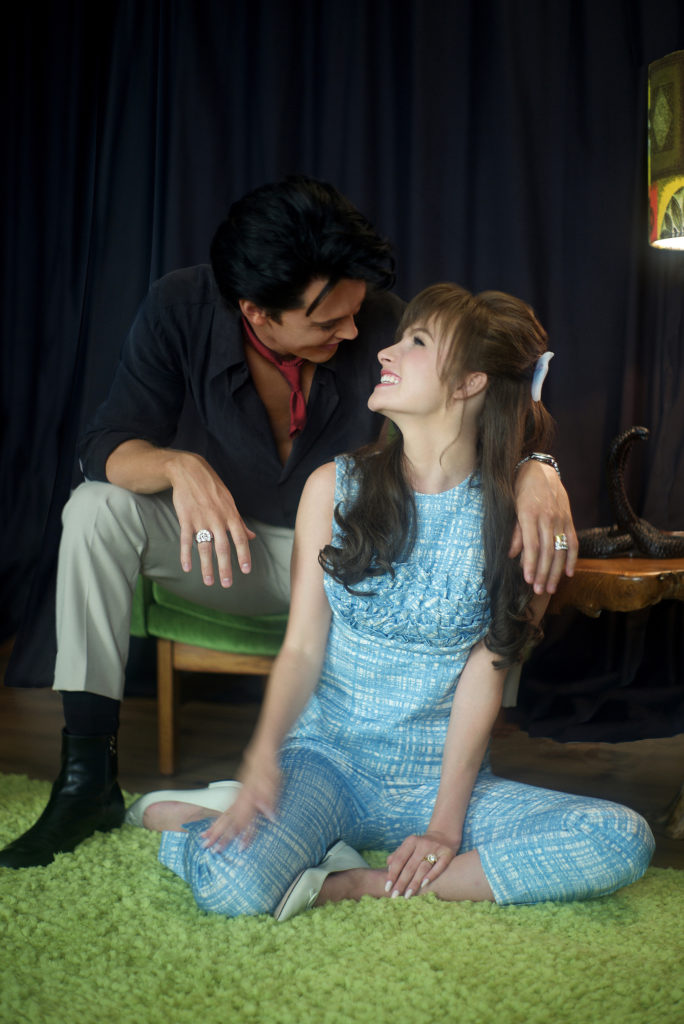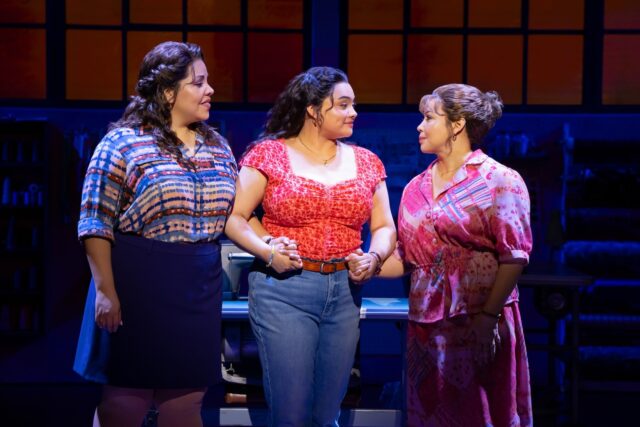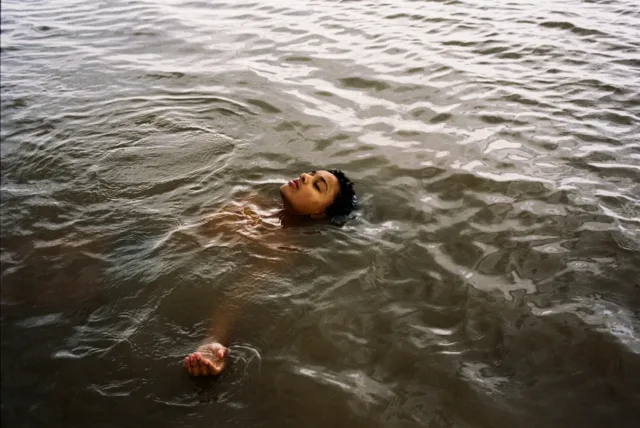REVIEW: Austin Butler Shines in New Elvis Film
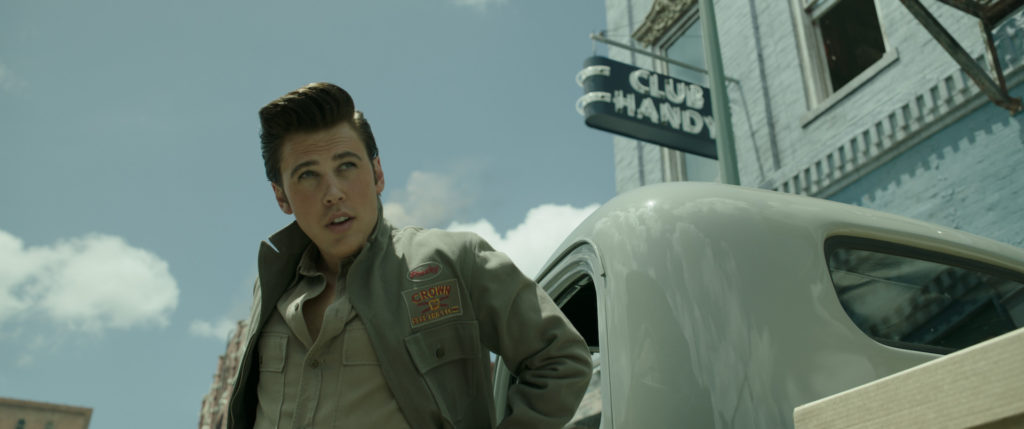
If you weren’t a fan of the artist known as Elvis, Austin Butler might just change your mind on at least getting to know more about his story. Butler charms and shines in his charismatic portrayal of the late legendary singer in the new Warner Brothers Pictures upcoming biopic, Elvis. Slated for late June, the film recently premiered at the Cannes Film Festival.
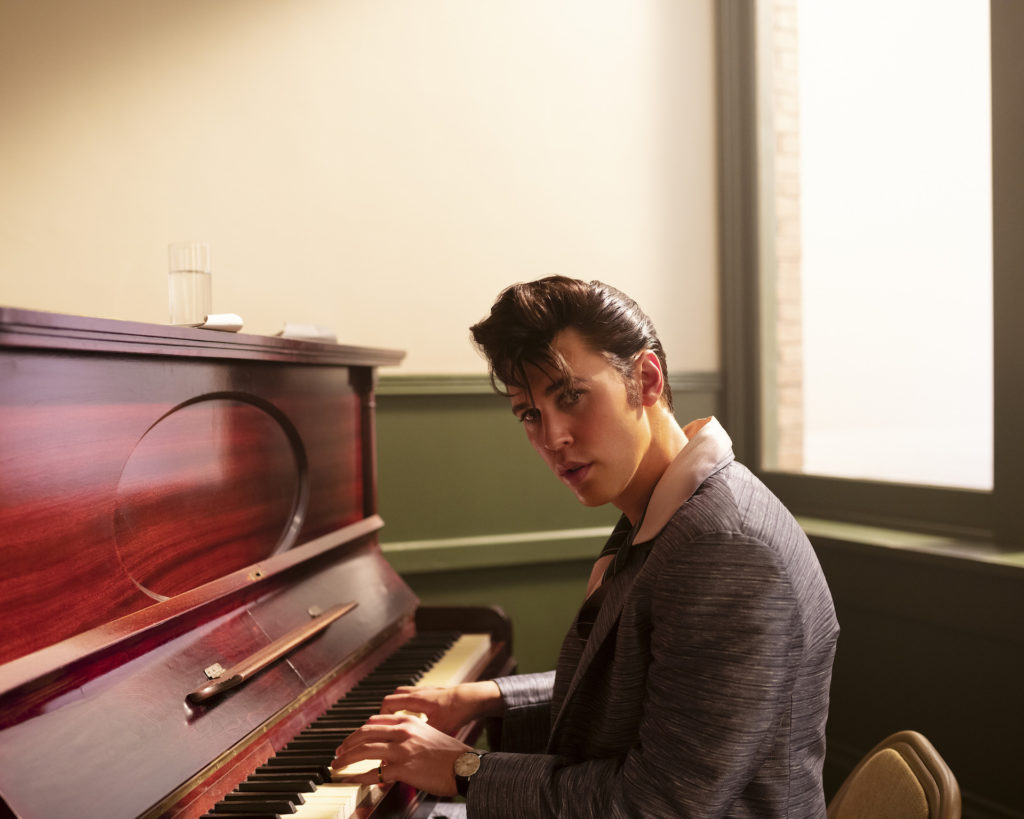
Warner Brothers Pictures’ Elvis, is directed by Oscar nominee Baz Lurhmann (The Great Gatsby, Moulin Rouge!) and not only stars Austin Butler as Elvis Presley but Tom Hanks as Colonel Tom Parker. Filmed primarily in Queensland, Australia, Elvis is the story of the late legend told through the eyes of Parker, his former manager, and follows their 20-year turbulent relationship.
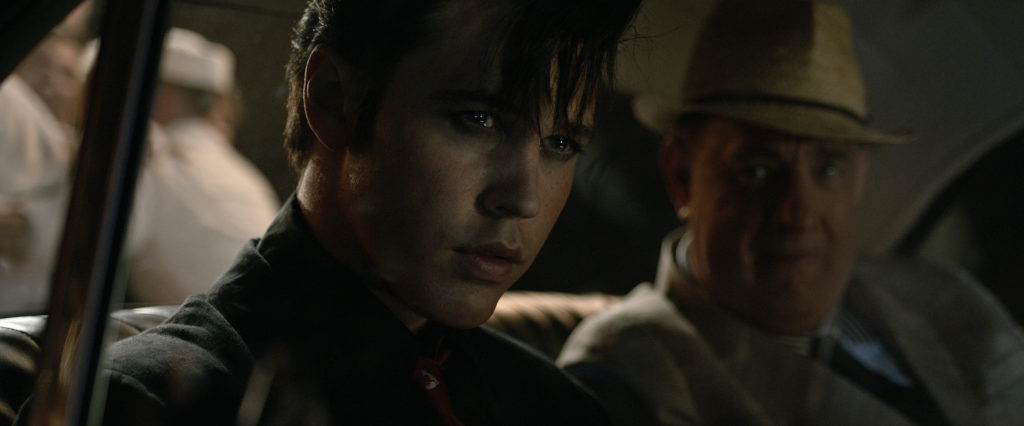
Parker was said to have embezzled millions of dollars from Presley as he was naive to the business side of the entertainment industry. Elvis just simply wanted to make music and to be able to afford to buy his mother a pink Cadillac. Tom was a carnival barker searching for the one great act to make him wealthy beyond his means and 19-year-old Elvis was it.
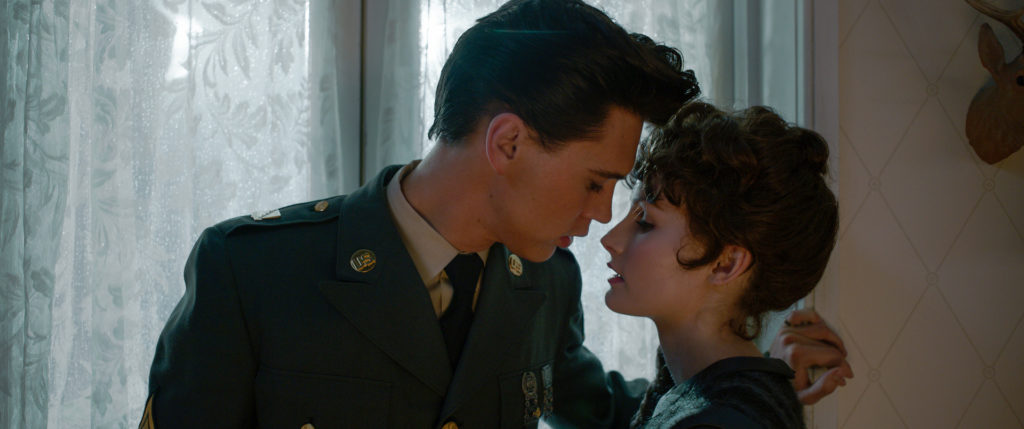
Elvis was a white entertainer who became famous for the Black-influenced sultry, gyrating R&B moves he learned as a young boy that literally got him arrested and banned from performing at one point as they were deemed “too Black” for mainstream white audiences.
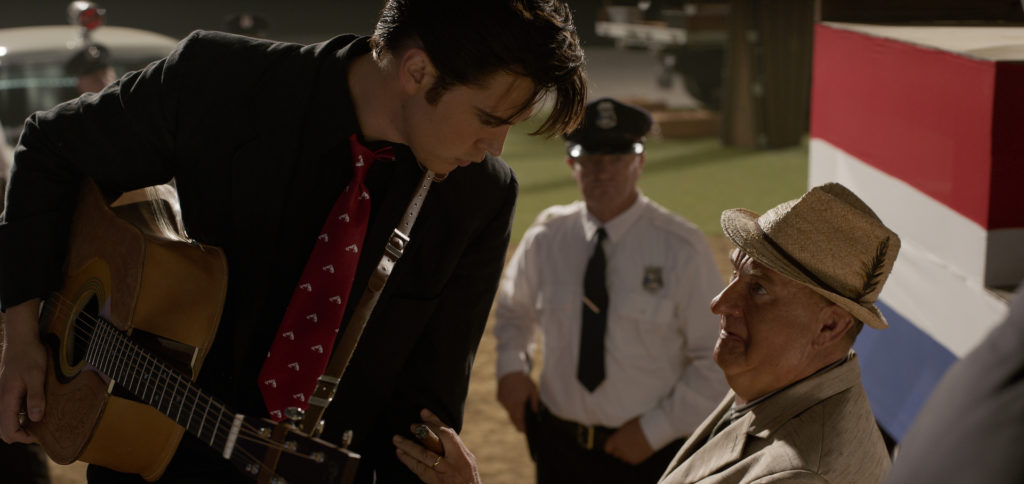
Elvis was raised in one of the few white-designated homes in a Black section of Tupelo, Mississippi, and that’s where his life was changed forever as he absorbed the rich culture that the Black community afforded him. From juke joints to gospel tent choirs, Elvis caught the holy ghost and learned the layers and complexities of R&B and soul music in America from some of the greats.
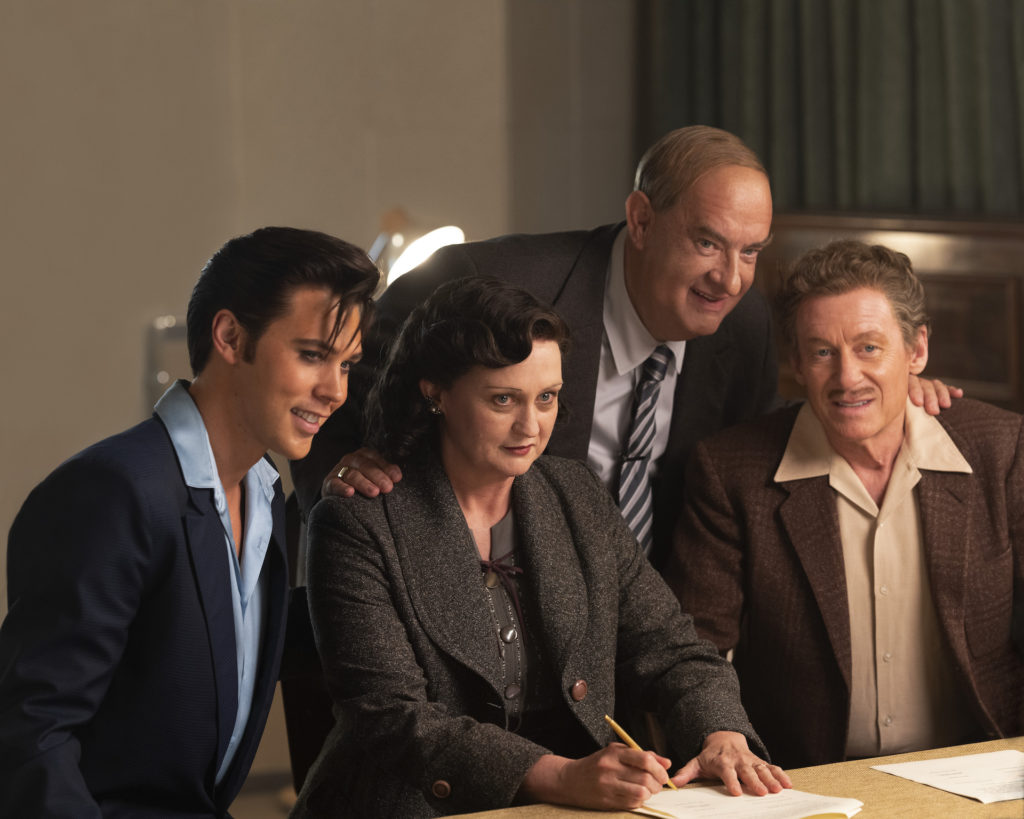
Baz Luhrmann’s Elvis is broken into three parts, beginning with a young Elvis. It then moves on to Parker’s discovery of the singer in his teens, and how he came onto the scene performing for his first live crowd with women losing their minds for Elvis’ very Black dance moves; kind of like how Justin Timberlake and Justin Bieber have borrowed from performers like Usher. The remainder of the film sees Elvis being able to purchase Graceland, his family’s home, his marriage to Priscella, and on to the chaotic American tour schedule mixed with unethical doctors, drugs to keep him awake on stage, back door deals from Parker, and Elvis’ attempts to liberate himself from under his manager’s clutches.
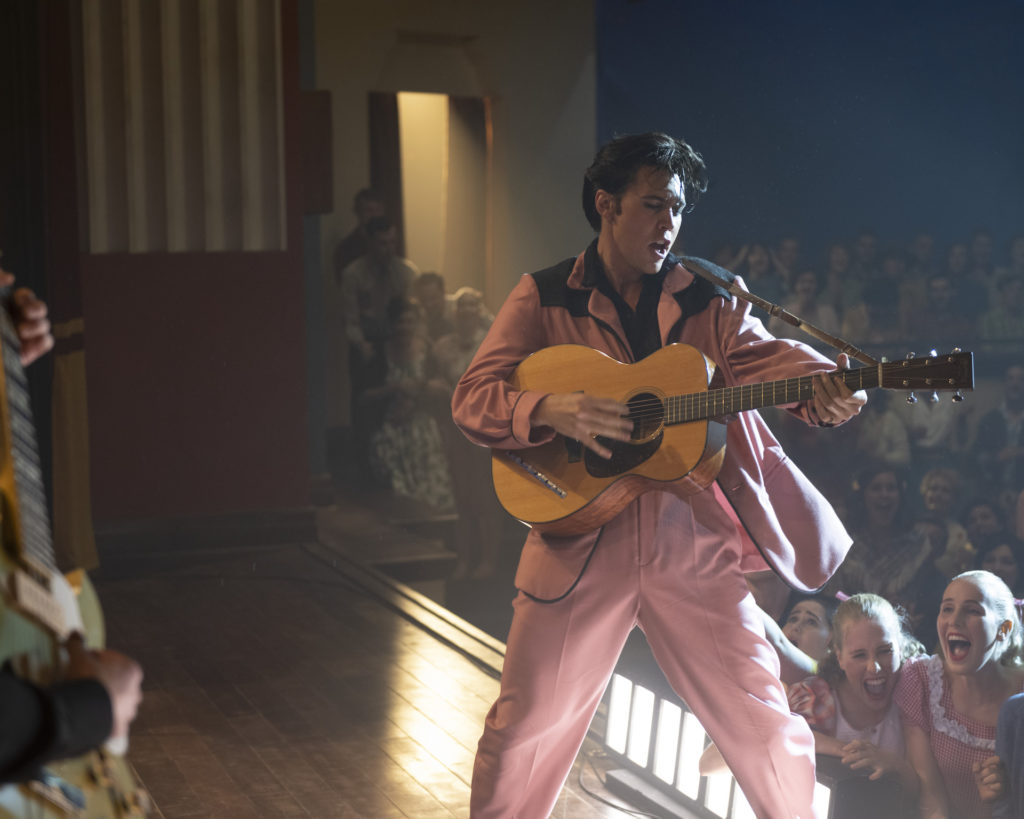
Butler will have you do a double-take with his performance as he embodies Elvis from voice, singing, movements, and physical appearance. I found myself a bit lost in some of the flashback scenes as Austin gave an award-winning interpretation of the beloved artist. Austin doesn’t mimic, which seems to be the caveat for some artists. Instead, you see an authentic Butler with his own unique southern charm and amazing singing voice with the essence of Elvis, which is pretty darn close to the original by default. Butler isn’t trying in this film, it’s effortless, and you can see the dedicated research he spoke of with Baz to perfect his performance.
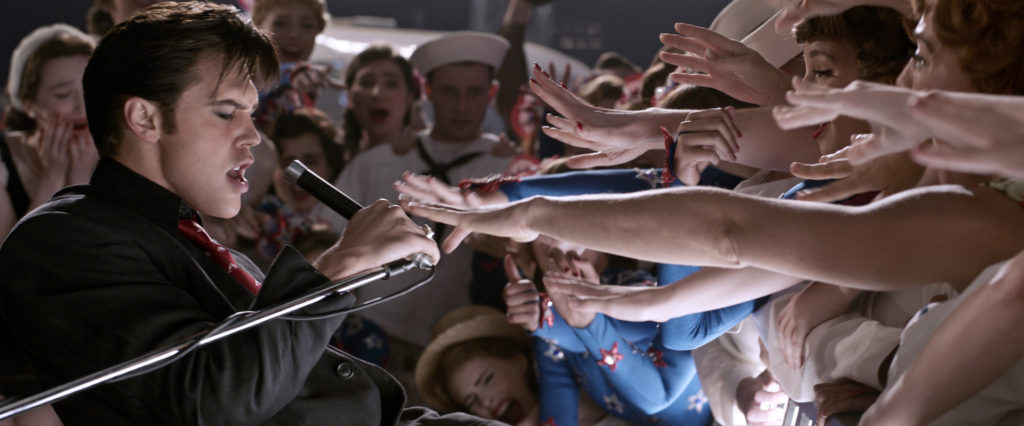
The visuals are stunning in Elvis, and it’s everything you would expect from the fascinating mind of Luhrmann after The Great Gatsby and Moulin Rouge. There’s colorful and fantastic cinematography that draws you into each scene. This film is breathtaking from costumes and set design, it’s easy for some critics of Luhrmann to dismiss his work in all of its extravagance, but his dedication and vision are undeniably brilliant in my mind. He helps to tell magical stories, and Elvis is no different. I spoke with both Baz and Austin in Cannes, and they both mentioned the amount of hard work, research, and dedication that went into making the film, and I believe it comes through in a big way.
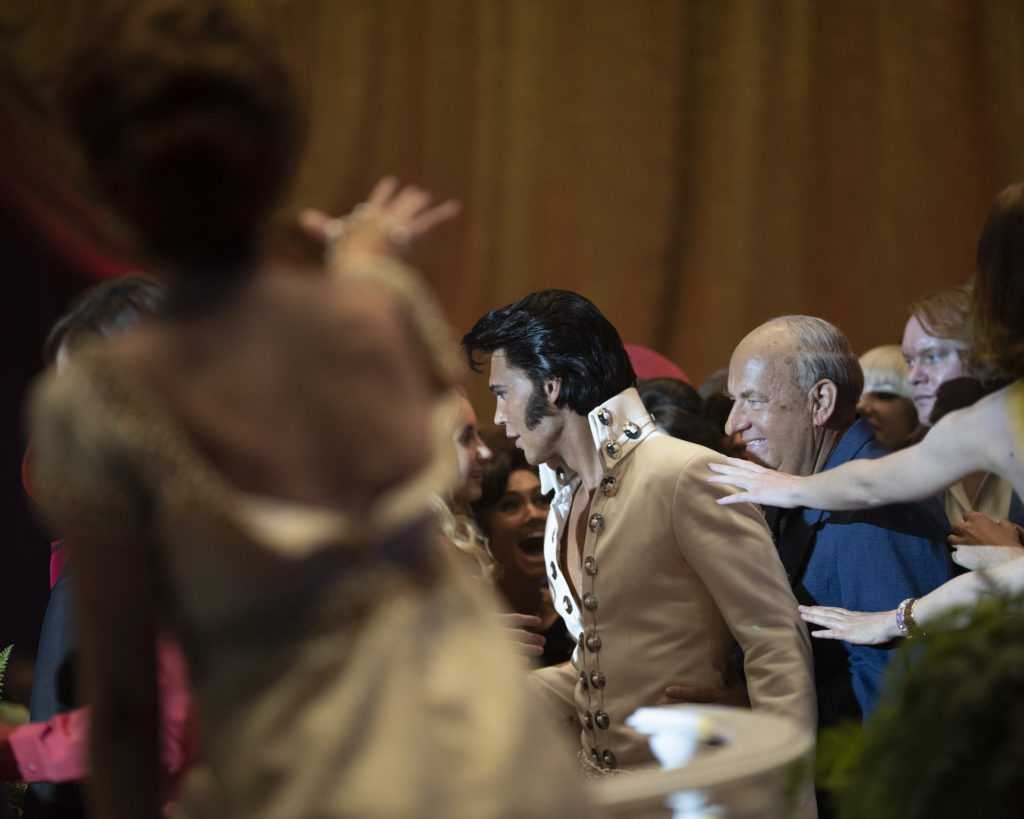
Tom Hanks as Parker was a little hokey for me. Even after visiting some of the videos and audio of Elvis’ manager and seeing his cartoonish real-life persona, I still feel Hanks didn’t quite nail the accent. However, it broke the film for me when he narrated along, and as much as I love Tom Hanks, the accent wasn’t for me, but the performance was on point. Parker was a pariah in the entertainment world and locked Elvis into being trapped in his management and penniless. At the same time, he profited from every concert and merchandise deal that donned the legendary musician’s face, name, and likeness.
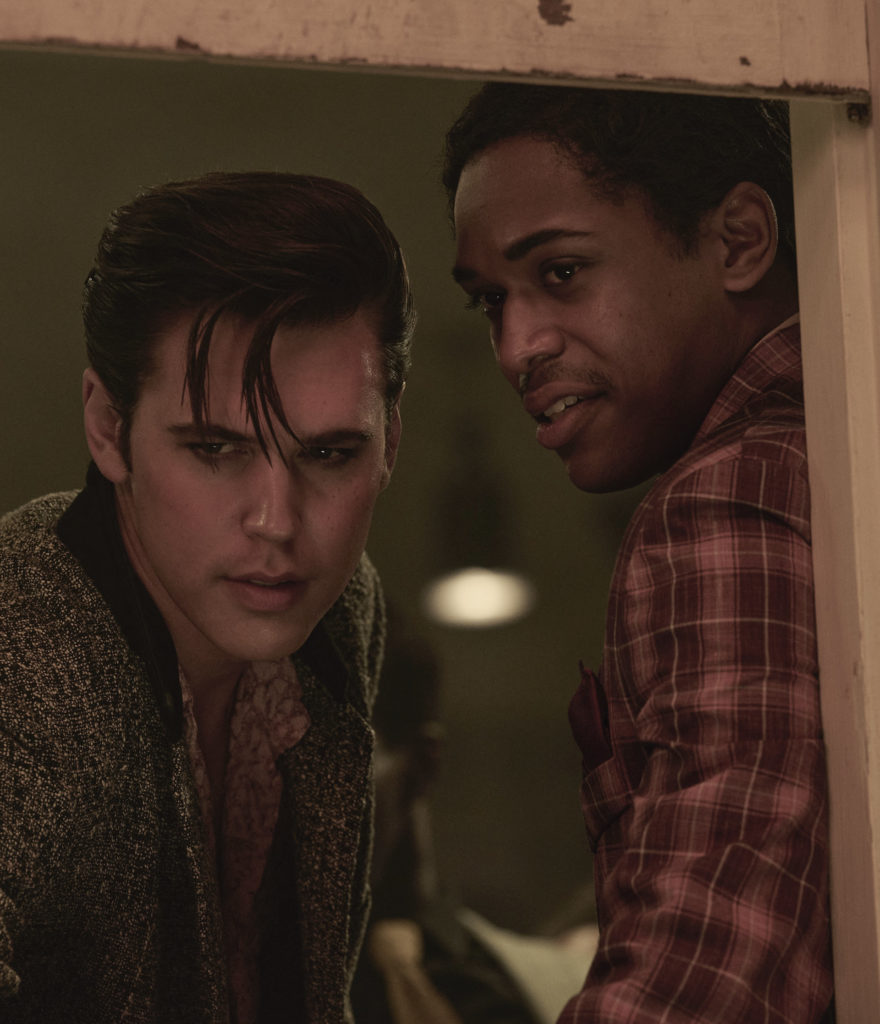
For many concerned that the film would leave out the fact that Elvis borrowed from Black artists who even today are not given their dues for their creativity, this screenplay does some justice by honoring those artists that Elvis covered, learned from, and was inspired by. Black culture and music are celebrated and woven from beginning to end in this film, as it rightfully should be. Nothing is left untouched down to the very last scene where Elvis is seen performing; there are flashbacks to B.B. King portrayed by Kelvin Harrison Jr. (The Trial of the Chicago 7, The High Note). The scenes were simultaneously shot, nodding and giving credit where credit is due. B.B. King was the “King of Blues” and a known friend of Presley’s, with both having appeared photographed together in a widely circulated photograph. King was an American blues singer-songwriter, guitarist, and producer who created a sophisticated style of guitar work using a bending, shimmering vibrato, and staccato picking that was an influence for those that came after him, including Elvis.
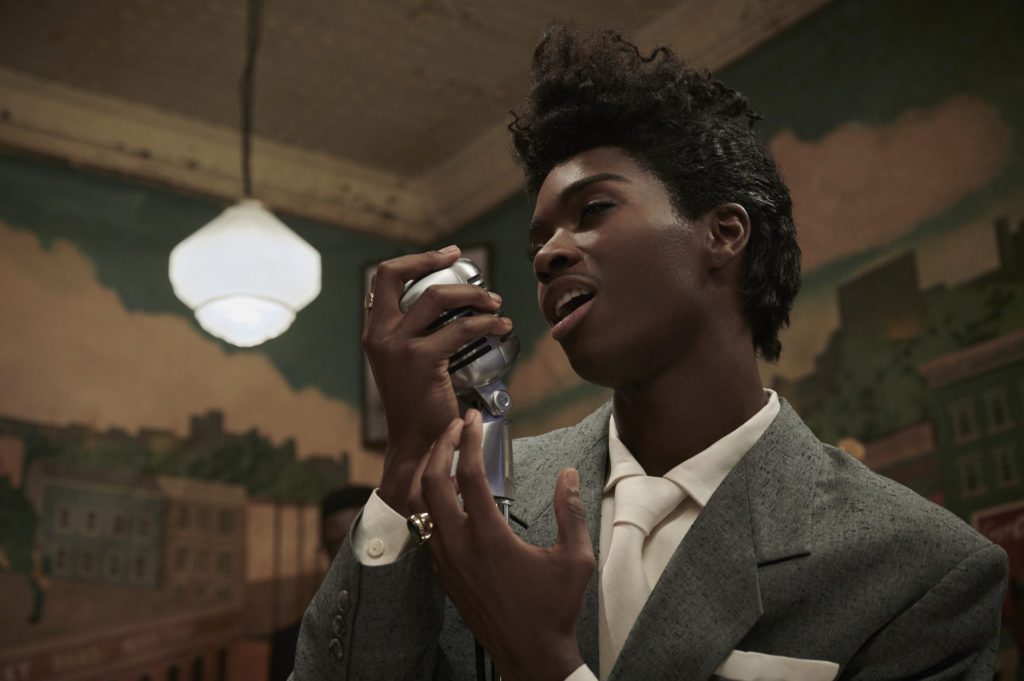
There are also wonderful scenes highlighting other musical greats that influenced Elvis, including actor and model Alton Mason starring as Little Richard in a vibrant and animated scene. Mason looks great on camera, and for not having a lot of acting credits under his belt, he does a really good portrayal of Richard on the piano. Despite not looking exactly like him, Alton was born in Mississippi and brought that southern flavor to the screen. The scene is just magical and visually works, highlighting Black music’s profound influence on the star.
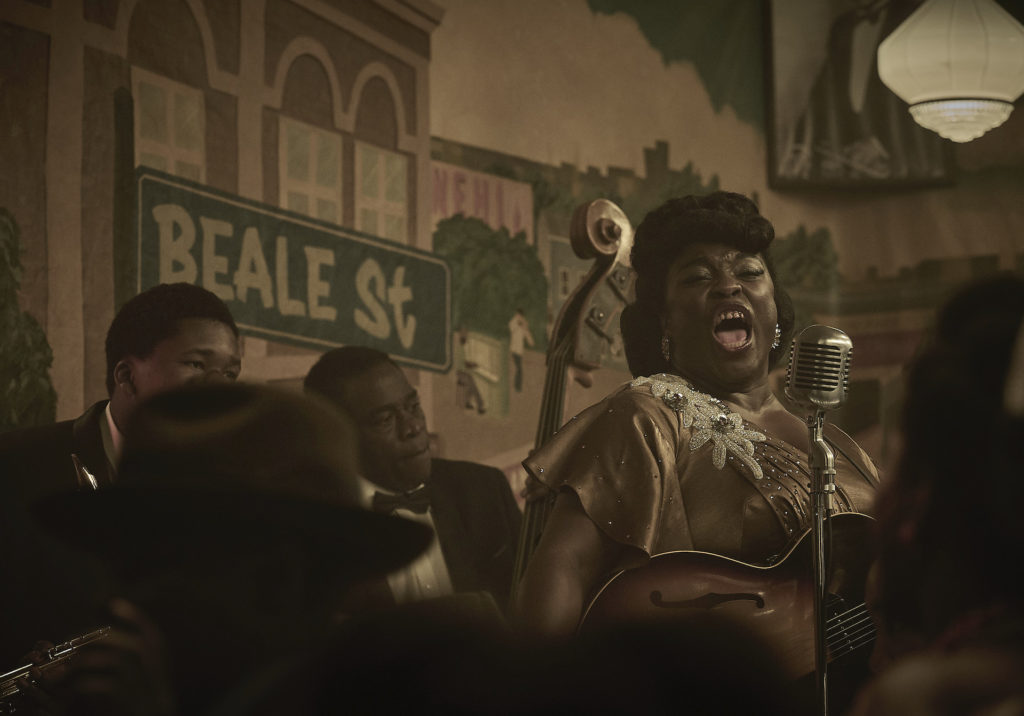
Musician Shonka Dukureh is another fascinating addition to Elvis as she gives her rendition of Willie Mae Big Mama Thornton. She is represented throughout the film in all of her ‘Black Girl Magic’ glory. Dukureh, portraying Thornton, takes up space at a time when Black musicians, especially females, were not paid what they deserved for being trendsetters in music. Her performance and portrayal were iconic. Would have loved to have seen more of her on film, but she wasn’t a blip on the screen; kudos were given. Willie Mae is an American R&B singer and songwriter who was the first to record Leiber and Stoller’s “Hound Dog” in 1952. The song became her biggest hit, selling almost two million copies, with seven weeks at number one on the Billboard R&B chart in 1953.
Elvis will not only give fans a chance to see the very charismatic legend come to life. Hopefully, it will provide them with some insight into why they loved Elvis’ movements and dance style and learn a bit about the Black influences that made him who he is and how that translates to what we are still struggling with today. Black creators are still fighting to be seen, heard, credited, and compensated for their art. Their work continues to be hijacked by white influencers who can take it, profit, and get national attention for something they have not created nor perfected.
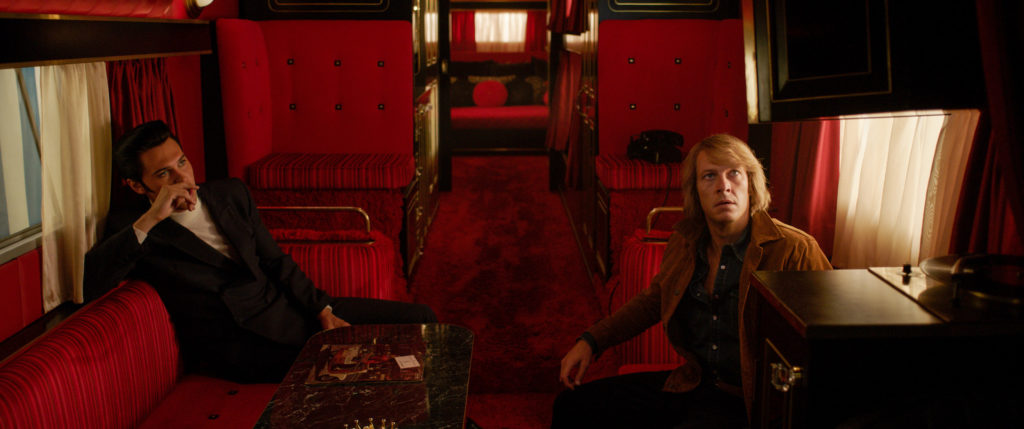
The soundtrack for Elvis is already amazing. It’s a combination of 36 tracks of Elvis recordings and some of his favorite covers, now recorded with names like Eminem, Doja Cat, Jack White, Jazmine Sullivan, Tame Impala, Diplo, Denzel Curry, and more contributing to the soundtrack.
Some of the original music has already been released, including Butler proving he did not come to play with his own rendition of ‘Trouble,’ released on RCA.
Italian Rock band Måneskin made an appearance at the Cannes Film Festival, where Elvis premiered with the full cast. Band members Damiano David, Thomas Raggi, Ethan Torchio, and Bassist Victoria De Angeles did a remake of “If I Can Dream” featured on the ELVIS soundtrack. Kacey Musgraves has a version of “Can’t Help Falling in Love” which is heard in one of the film’s latest trailers.
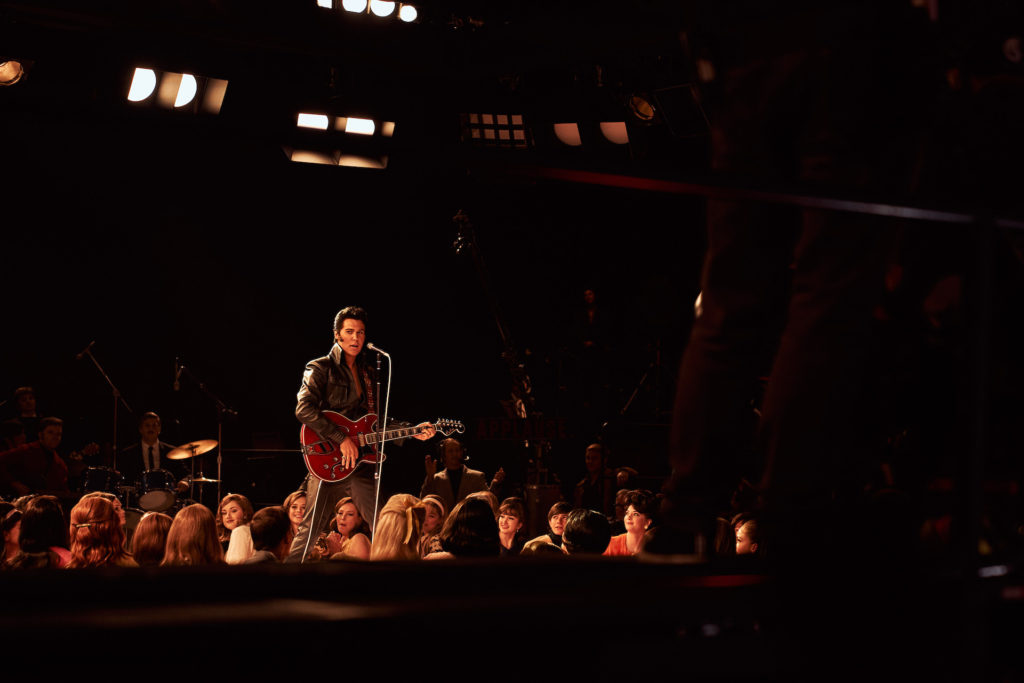
Other notable songs include Diplo, Austin Butler, and rapper Swae Lee’s collaboration on “Tupelo Shuffle” a remake of Elvis’ “That’s All Right.” A fun fact Baz shared in Cannes at the premiere, Diplo, Swae Lee, and Elvis were all born in Tupelo, so it’s only fitting that they make a great dance song for the soundtrack.
Elvis was produced by Baz Luhrmann, Catherine Martin, Gail Berman, Patrick McCormick, and Schuyler Weiss, Mandy Walker serves as Director of Photography. Production designers included Catherine Martin and Karen Murphy. Martin also served as costume designer.
Starring alongside Butler and Hanks is award-winning theater actress Helen Thomson (Top of the Lake: China Girl, Rake) who stars as Elvis’s mother, Gladys. Richard Roxburgh (Moulin Rouge!, Breath, Hacksaw Ridge) portrays Elvis’s father, Vernon, and Olivia DeJonge (The Visit, Stray Dolls) stars as Priscilla.
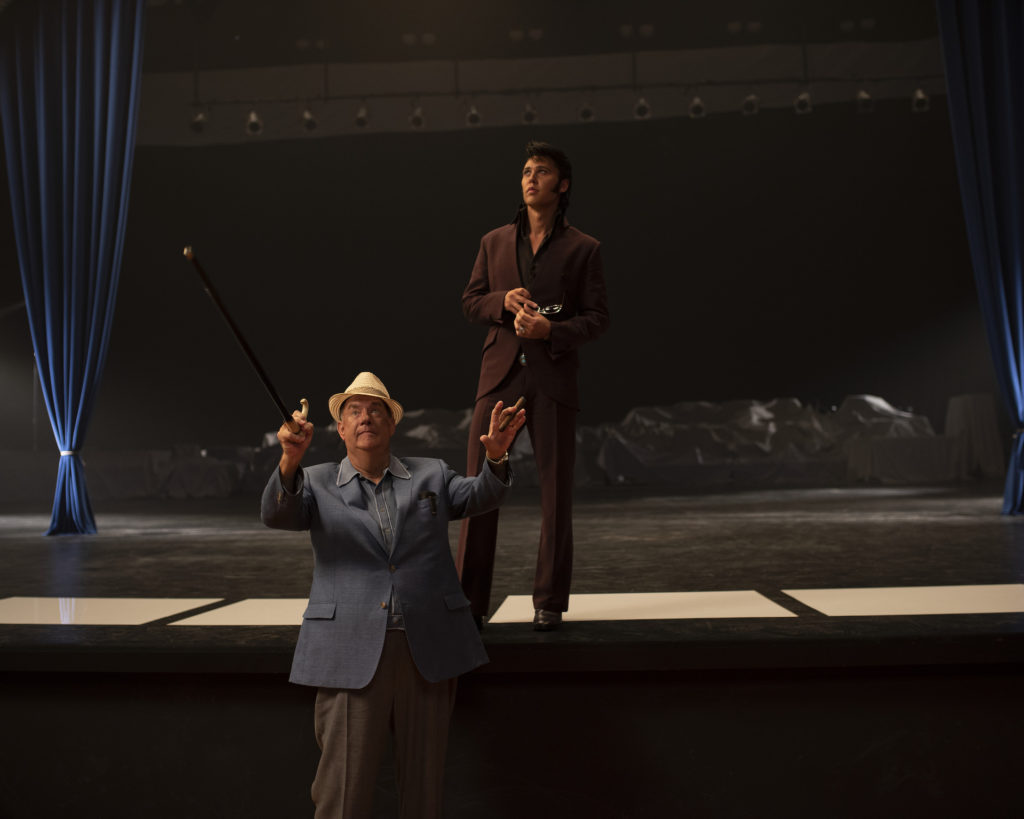
Luke Bracey (Hacksaw Ridge, Point Break) portrays Jerry Schilling, Natasha Bassett (Hail, Caesar!) stars as Dixie Locke, David Wenham (The Lord of the Rings Trilogy, Lion, 300) as Hank Snow, Xavier Samuel (Adore, Love & Friendship, The Twilight Saga: 2 Eclipse) stars as Scotty Moore, and Kodi Smit-McPhee (The Power of the Dog) portrays Jimmie Rodgers Snow.
The cast also includes Dacre Montgomery (Stranger Things, The Broken Heart Gallery) stars as TV director Steve Binder, alongside Australian actors Leon Ford (Gallipoli, The Pacific) as Tom Diskin, Kate Mulvany (The Great Gatsby, Hunters) as Marion Keisker, Gareth Davies (Peter Rabbit, Hunters) as Bones Howe, Charles Grounds (Crazy Rich Asians, Camp) as Billy Smith, Josh McConville (Fantasy Island) as Sam Phillips, and Adam Dunn (Home and Away) as Bill Black.
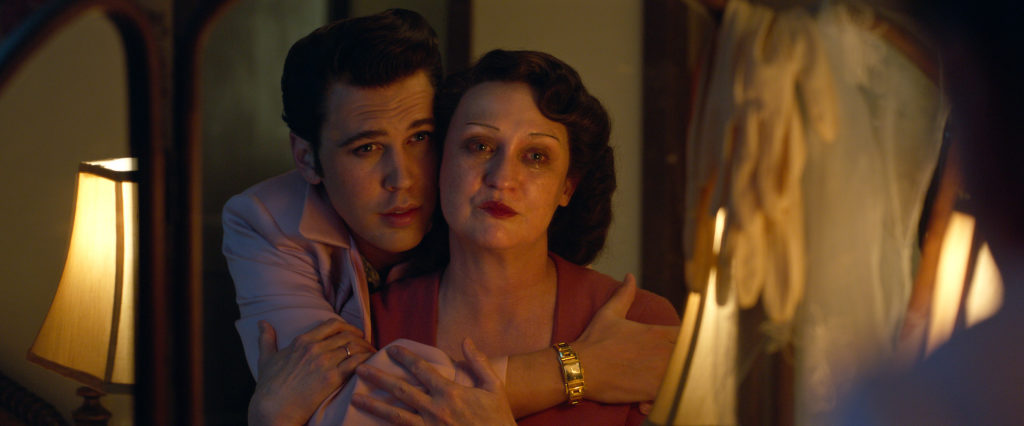
Elvis hits theaters in the US on June 24.

Award-Winning Publisher

